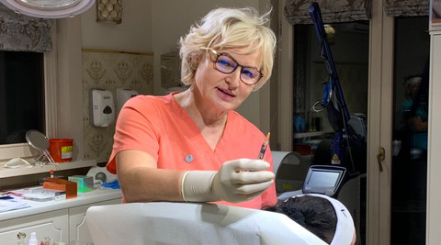Boiling frog syndrome, or how your mind responds to the environment

The boiling frog phenomenon was first presented by Olivier Clark, a writer and philosopher who used this metaphor to demonstrate that a human being put in certain conditions, even if they are uncomfortable, will slowly get used to them and stay within, not being able to get out. At Dr Parda Aesthetic Medicine Clinic we do not only offer aesthetic medicine or aesthetic surgery procedures but also adult psychiatry, or psychologist advice. The Clinic will help you deal with mental problems, not limited to your body and its appearance but also those hidden much deeper. Dr Parda believes that a healthy mind and soul is indispensable for enjoying a healthy and beautiful body; therefore, Dr Parda offers advice to patients suffering from body dysmorphic disorder, anxiety neurosis or depression.
What is the boiling frog syndrome?
For his metaphor, Olivier Clark chose a frog, a cold-blooded amphibian capable of gradually adjusting its body temperature to the environment. If a frog is placed in a pot with boiling water, it would jump out immediately; however, if we put it in water at ambient temperature and start heating it up gradually, the frog will start adjusting its body temperature to the new environment instead of jumping out. The frog will not realize that the water is boiling, and when it does, it will be too late for escape. How does this metaphor translate into our everyday lives? The essence of the boiling frog syndrome is that when our living conditions deteriorate gradually, we adapt to these conditions instead of getting rid of them, until we are no longer strong enough to escape. The boiling frog syndrome may occur in our relationships, interactions, or work-related situation. You should remember that you should say “ENOUGH” strongly when you feel that the situation you are in makes you worse and you cannot find a way to change it.
Are you affected by the boiling frog syndrome?
Human resistance to stress and discomfort is really limited because the situation will always finally start to hurt, just like it does to the frog. It is therefore disastrous to wait until the last moment with getting out of the situation because you will find it harder to react after a few months in the situation than at an early stage. Aesthetic medicine and surgery procedures have a major impact on the patient’s mental health, yet you should remember that they will not fully eliminate all your problems, nor change your overall attitude; therefore, before any major surgery, Dr Parda offers specific advice to patients so as to make the patient care holistic. Remember that beauty is largely the effect of mind and body balance. Therefore, Dr Parda not only offers support to people wanting to improve their looks but also to those willing to understand their minds and their emotions.
Meeting with a psychologist before an aesthetic surgery procedure - what is it like?
Advice from a psychologist before an aesthetic medicine procedure is extremely important when you want to be sure that your decision is mature and well conceived. An expert will help the patient determine whether their expectations are not exaggerated, or perhaps inadequate, considering the realistic options. If a patient has a specific vision of a surgical change, of which the physician knows will not fit the shape of their face, but the patient will not be convinced, such patient should not undergo the procedure at all because the final effect may be a disappointment and will lead to many repetitions. Aesthetic surgery procedures are not recommended for patients suffering from mental disorders, as a surgery will never solve their real problems. If a patient suffering from mental disorder is approved for surgery, they will usually notice another problem to focus on and they want to proceed to another corrective treatment. Meeting with a psychologist is also recommended if the only reason for improving your looks is that you want to meet other people’s expectations.








